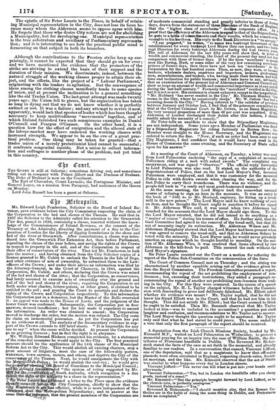Although the contributions to the Preston strike keep up sur-
prisingly, it cannot be expected that they should go on for ever; and we have mentioned the evidence that the promoters of the strike are striving to extend the basis of their suei rt and the
I
duration of their mission. We discriminate, indeed, tween the natural struggle of the working classes proper to attain their ob- ject, and the efforts, like the project of a "Labour Parliament," originating with the traders in agitation. But the convergence of ideas among the striking classes manifestly tends to some species of union, and at present the inclination is to a general something like the old Trades Union. The last great attempt was made twenty years ago ; the Union fell to pieces, but the organization has taken so long in dying out that we do not know whether it is perfectly extinct or not. It was a failure ; and any attempt to revive it now, apparently, would lack that species of leader which has been thought necessary to keep multitudinous "movements" together, and of which Ireland furnished two sueh conspicuous examples in Daniel O'Connell and Feargils O'Connor. On the other hand, it is a question how far the effect of emigration and the altered state of the labour-market may have endowed the working classes with increased strength. We appear to be on the eve of a great prac- tical problem. One thing may be taken for granted—that a trades union of a merely protectionist kind cannot be successful ; it confronts congenital suicide. But a union to collect informa- tion and suffrages is another phase of the problem, not yet tried in this country.


































 Previous page
Previous page